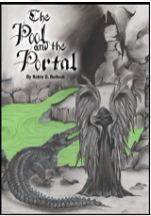Parallel Gospels 20 - Fasting and Old Wineskins
Matthew 9:14-17Holman Christian Standard Bible (HCSB)
A Question about Fasting
14 Then John’s disciples came to Him, saying, “Why do we and the Pharisees fast often, but Your disciples do not fast?”
15 Jesus said to them, “Can the wedding guests[a] be sad while the groom is with them? The time[b] will come when the groom will be taken away from them, and then they will fast. 16 No one patches an old garment with unshrunk cloth, because the patch pulls away from the garment and makes the tear worse. 17 And no one puts[c] new wine into old wineskins. Otherwise, the skins burst, the wine spills out, and the skins are ruined. But they put new wine into fresh wineskins, and both are preserved.”
Mark 2:18-22Holman Christian Standard Bible (HCSB)
A Question about Fasting
18 Now John’s disciples and the Pharisees[a] were fasting.People came and asked Him, “Why do John’s disciples and the Pharisees’ disciples fast, but Your disciples do not fast?”
19 Jesus said to them, “The wedding guests[b] cannot fast while the groom is with them, can they? As long as they have the groom with them, they cannot fast. 20 But the time[c] will come when the groom is taken away from them, and then they will fast in that day. 21 No one sews a patch of unshrunk cloth on an old garment. Otherwise, the new patch pulls away from the old cloth, and a worse tear is made. 22 And no one puts new wine into old wineskins. Otherwise, the wine will burst the skins, and the wine is lost as well as the skins.[d] But new wine is for fresh wineskins.”
Luke 5:33-39Holman Christian Standard Bible (HCSB)
A Question about Fasting
33 Then they said to Him, “John’s disciples fast often and say prayers, and those of the Pharisees do the same, but Yours eat and drink.”[a]
34 Jesus said to them, “You can’t make the wedding guests[b] fast while the groom is with them, can you? 35 But the time[c] will come when the groom will be taken away from them—then they will fast in those days.”
36 He also told them a parable: “No one tears a patch from a new garment and puts it on an old garment. Otherwise, not only will he tear the new, but also the piece from the new garment will not match the old. 37 And no one puts new wine into old wineskins. Otherwise, the new wine will burst the skins, it will spill, and the skins will be ruined. 38 But new wine should be put into fresh wineskins.[d]39 And no one, after drinking old wine, wants new, because he says, ‘The old is better.’”[e]
According to this page,
The primary fast of the Jews was the Day of Atonement, one of the seven annual solemn assemblies of the Law of Moses. The Pharisees also fasted on the second and fourth days of every week. Apparently, the disciples of John were doing something similar. ... Although such fasting was not part of the Law of Moses, by Jesus’ day it had become an important expression of the Pharisees’ meticulous devotion to the ceremonial law. ... After Jesus was gone, fasting would have a place in the Christian community. It would remind believers of their dependence on God, of their need for God’s mercy, and of the power of God for the salvation of those who believe the gospel. Until then, Jesus’ disciples had no reason to fast. In the Bible, fasting is a sign of disaster, or a voluntary abasement during times of great stress or trial. But the presence of the Son of God on earth with his disciples was a time of joy, not of sorrow. The time for sorrow would come later, when Jesus was murdered and taken away.
According to this page,
In the passage we are studying some people asked Jesus why his disciples did not fast and, in answer to their question, he described himself as a bridegroom. .. The New Testament uses the analogy of Jesus as a bridegroom and his Church as the bride; one day both bride and bridegroom will be united together at the wedding supper of the Lamb (Rev 19:6–9). However, in this instance, Jesus described himself as the bridegroom and his disciples as the guests of the bridegroom.... In Jewish culture it was regarded as an insult for guests to fast (a sign of mourning) at a wedding feast (a time of celebration).

Comments
Post a Comment